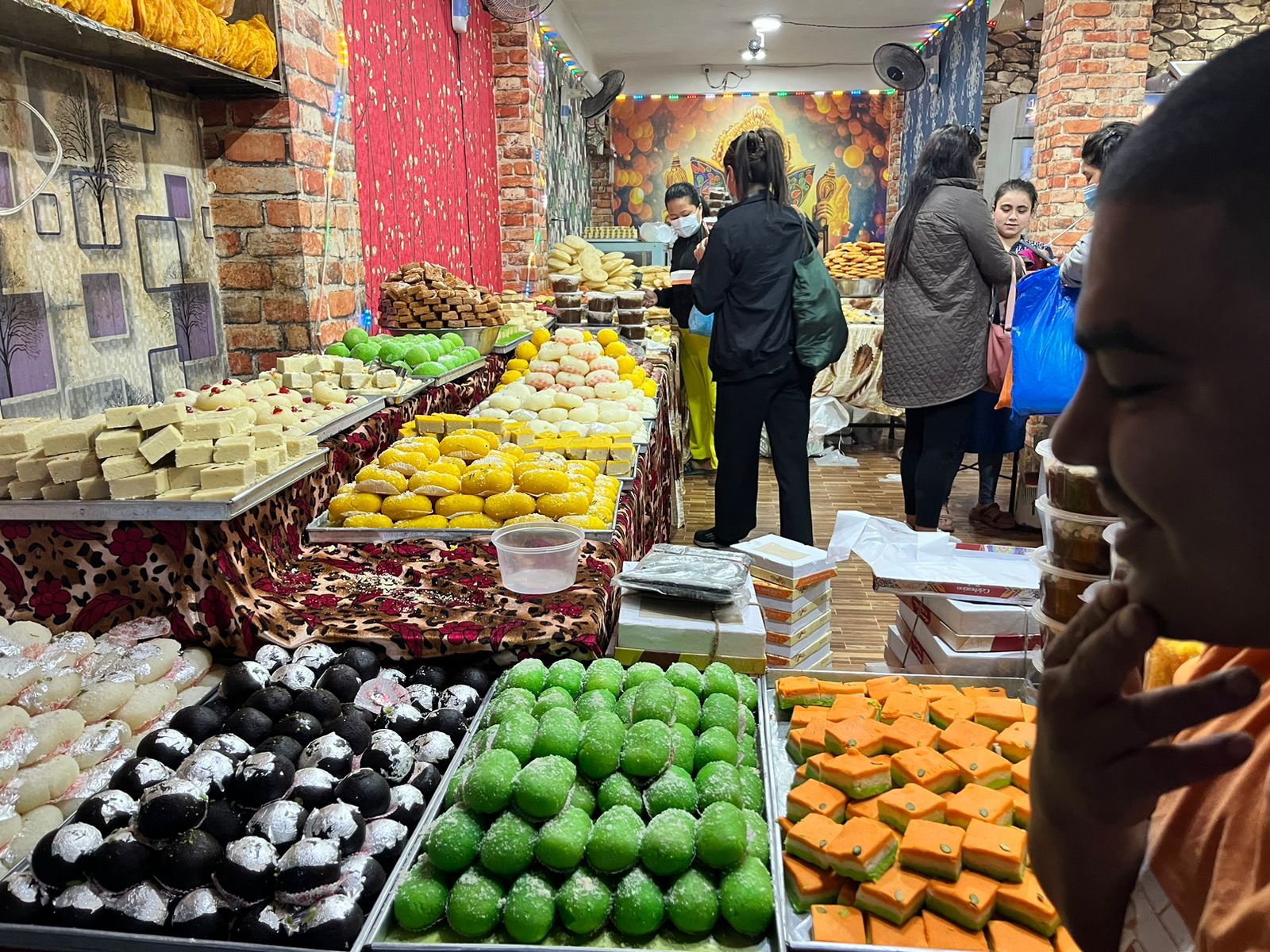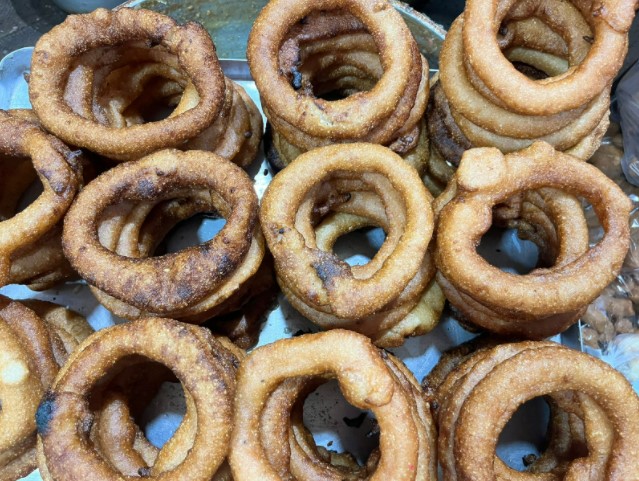Life & Health

Every year, Tihar - the festival of lights - brings cheers and treats for your sweet tooth.
During the five-day festival, sweets and Sel Roti add much more enthusiasm and elate your festive spirit. So much so that people devour them to their heart's content. However, health experts caution against overindulgence in Tihar sweets and delicacies, especially oily foods.
"Consuming oily food items can cause indigestion and gastritis," said Dr Bikash Jaishi, hepatologist and gastroenterologist at Bir Hospital.
According to him, eating oily food increases cholesterol. High cholesterol can lead to a heart attack. "Besides, the fats get deposited in the liver, causing fatty liver which later can lead to liver damage."

You love to eat sel rotis and puris on special occasions. But preparing all the tasty and crispy fried stuff has a big disadvantage: wastage of edible oil. So, you are at times tempted to reuse left over oil for cooking. Easting food items made in left over oil is detrimental to your health.
"Each time oil is heated, its fat molecules, including the high-density lipoprotein (HDL), decrease a little," Dr Jaishi explained. "Repeatedly heating oil produces a type of fat called triglycerides which is harmful to health. Eating food items prepared in leftover oil increases cholesterol levels in the blood."
Dr Aruna Upreti, a nutritionist, added consumption of such foods could invite many diseases.
"People are likely to suffer from hypertension and vascular inflammation. Those already suffering from diabetes and high blood pressure will be at a higher risk," she said.
People often eat a lot of sweets during the festival, Dr Upreti pointed out. "Overeating sweets leads to weight gain. Being overweight increases the risk of heart disease and diabetes."
The sweets sold in markets can be unhealthy; they might have been made in leftover oil. Sweets sold in markets can be unhealthy. Instead, you can prepare sel roti, puri, halwa, etc., at home.
The tradition of sisters giving an assortment of dried fruits to brothers is one of the most treasured parts of the Bhai Tika ritual during Tihar. Dry fruits such as cashew, almond, and walnut have multiple benefits.


"Rich in nutrients, vitamins and fats, you can have dry fruits in moderation every day," Dr Jaishi said. "But overindulging in them will increase the cholesterol in the body."
He added: "Such items can also be mixed with other foods such as haluwa and kheer."
Health experts also advise avoiding canned juice as it contains added sugar. Instead, they advise people to prepare food at home with less amount of salt and oil.
Giving their eating routine a pass, people consume unhealthy food during festivals. Also, the timetable for eating is not followed correctly.
We should be careful of maintaining time table to eat for those who are ill, elderly, and children as they can hamper them, doctors advise.
"Acid is formed when people do not eat on time," warned Dr Jaishi. "As a result, they suffer from gastritis and indigestion. They should eat on time and eat healthy."
Doctors also advise taking in green leafy vegetables and fruits.
Dr Jaishi said: "They help keep appetite in check, reduce digestive problems and have a positive effect on blood sugar."
Health experts suggest people prepare sweets and savouries at home using less sugar and oil. "But don't gorge yourself."
Have a healthy and happy Tihar!

_11zon1681280198.jpg)




